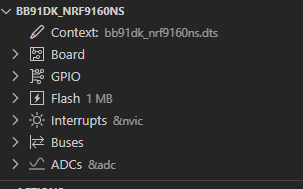Hi,
I'm having trouble with my custom 9160 board. It won't connect to LTE-M network and keeps resetting.
My prototype was developed using the 9160DK. I can connect to LTE-M network and send data to nrf Cloud. The combination is 9160 B1A, mfw 1.3.1, and NCS SDK1.7.1.
Now my custom board is using B0A silicon, with mfw 1.1.1. I have upgrade/downgrade between 1.1.1 and 1.3.1 multiple times. But that doesn't seem to make any difference.
My test code is simplified to like this:
The log message looks like this:
So it went through lte_lc_init(), but never returned from lte_lc_connect(). It will stays there for various amount of time, from a few seconds to a minute or so, then it resets.
Since this is a custom board, I try to figure out if any hardware issue could cause such problem. I assume lte_lc_connect() will search for the network and try to make a connection. The document says it has a timeout. I assume if it timed out, it should return from lte_lc_connect() with an error code? But it never returned and always resets after a while. Any possible explaination lte_lc_connect() could cause this? Or should I more look at hardware side? How can I get more debug information to troubleshoot this? I already set CONFIG_LTE_LINK_CONTROL_LOG_LEVEL_DBG=y.
The same code runs fine on the 9160DK and get connected in a few seconds.
Thanks!



